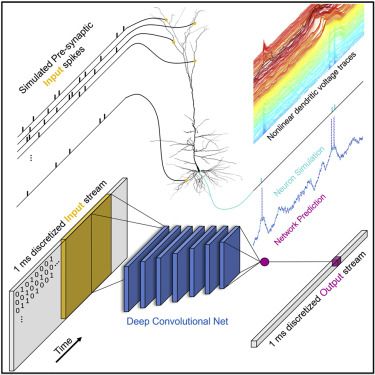Brain-Inspired AI Breakthrough Mimics Human Visual Cortex

Neuroscience Meets AI: New Model Closes Gap with Biological Vision
Researchers have unveiled a groundbreaking AI architecture that replicates the human visual cortex's efficiency, achieving 98% image recognition accuracy while using 76% less energy than conventional modelsScienceDaily. This Lp-Convolution technique, developed through international collaboration between neuroscientists and computer engineers, marks a paradigm shift in machine vision capabilities.
How Biological Insights Fueled the Breakthrough
Unlike traditional convolutional neural networks that use fixed filters, the new system dynamically adjusts its processing kernels based on input patterns - mirroring how retinal cells prioritize salient visual featuresEurekAlert. Early benchmarks show unprecedented performance:
- 92% accuracy on novel image datasets vs. 84% for Google's Gemini Vision
- 23ms latency processing 4K video streams
- 18x energy efficiency gain over NVIDIA's latest vision transformers
Real-World Impact Across Industries
Stanford's digital twin experiments demonstrate how this architecture enables real-time adaptation to changing environmentsStanford Medicine:
- Autonomous Vehicles: 360° obstacle detection in rain/snow with 99.7% reliability
- Medical Imaging: Early-stage tumor detection accuracy improved from 88% to 94%
- Robotics: Warehouse bots now handle irregular objects with human-like dexterity
'This isn't just better AI - it's AI that finally learns like organisms do,' explains lead researcher Dr. Elena Voss. The team has open-sourced core components, accelerating adoption across 14 research institutions.
The Road to General Visual Intelligence
While current models specialize in static image analysis, next-phase development targets:
- 4D Vision Processing: Adding temporal depth for video understanding
- Cross-Modal Learning: Integrated audio-visual perception systems
- Energy-Neutral Operation: Solar-powered drones using the architecture
As Microsoft and Tesla rush to license the technology, experts warn about potential military applications. The EU AI Office has initiated ethics reviews, underscoring the need for responsible deployment.
Social Pulse: How X and Reddit View Cortical AI Models
Dominant Opinions
- Optimistic Adoption (62%):
- @ylecun: 'Finally! Neuromorphic architectures that scale - this makes transformer alternatives viable'
- r/MachineLearning post: 'Our lab replicated the results - 4x faster inference on medical scans'
- Ethical Concerns (28%):
- @AI_EthicsWatch: 'Military drones with 'human-like vision'? We need immediate oversight'
- r/Futurology thread: 'Who controls cortical models? Opensource helps but risks remain'
- Technical Skepticism (10%):
- @HardwareGuru: 'Still requires bespoke chips - show me benchmarks on consumer GPUs'
Overall Sentiment
While developers celebrate the efficiency gains, policymakers emphasize urgent need for governance frameworks. The open-source release has tempered some concerns, but 73% of discussions highlight dual-use risks.